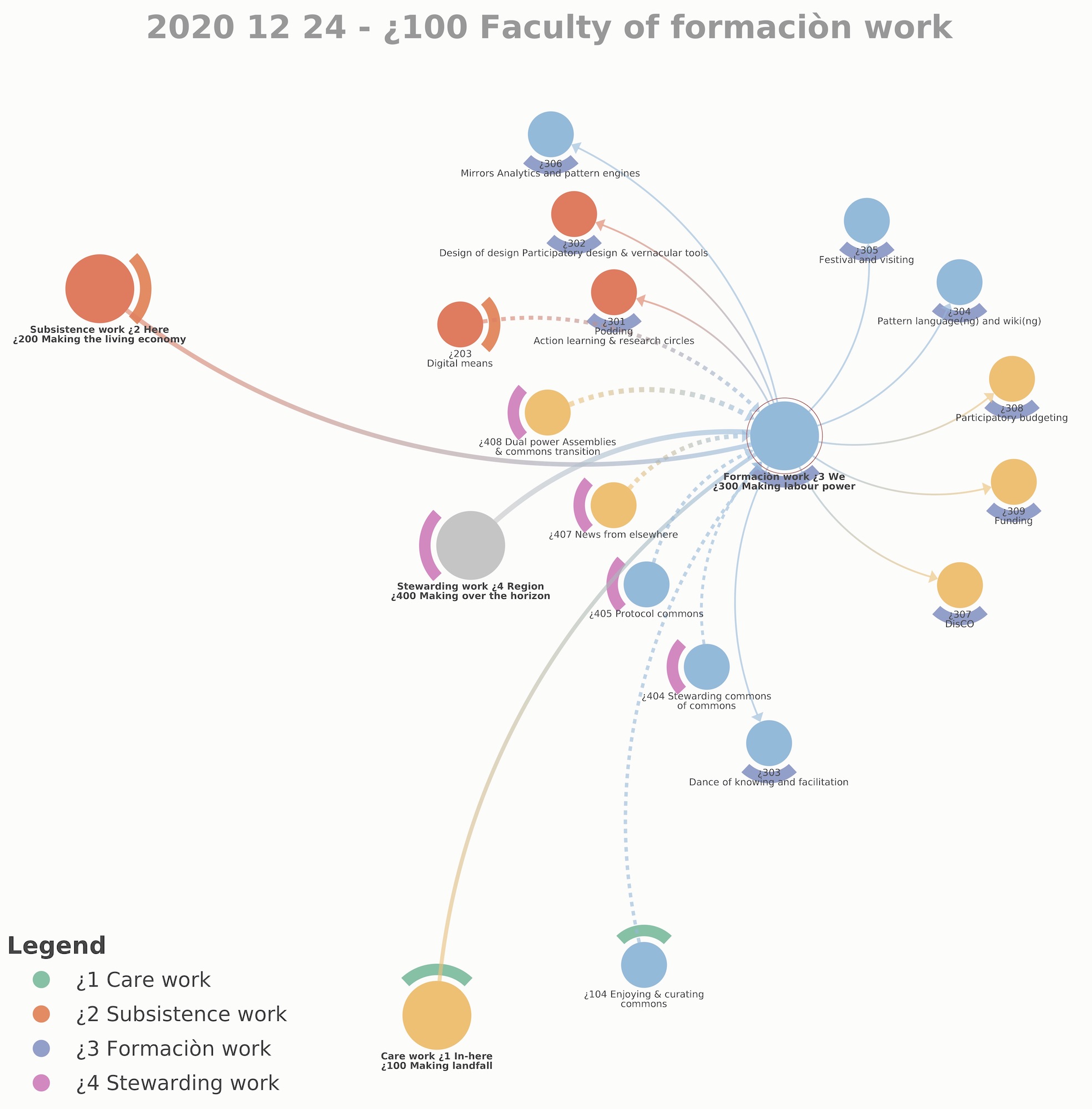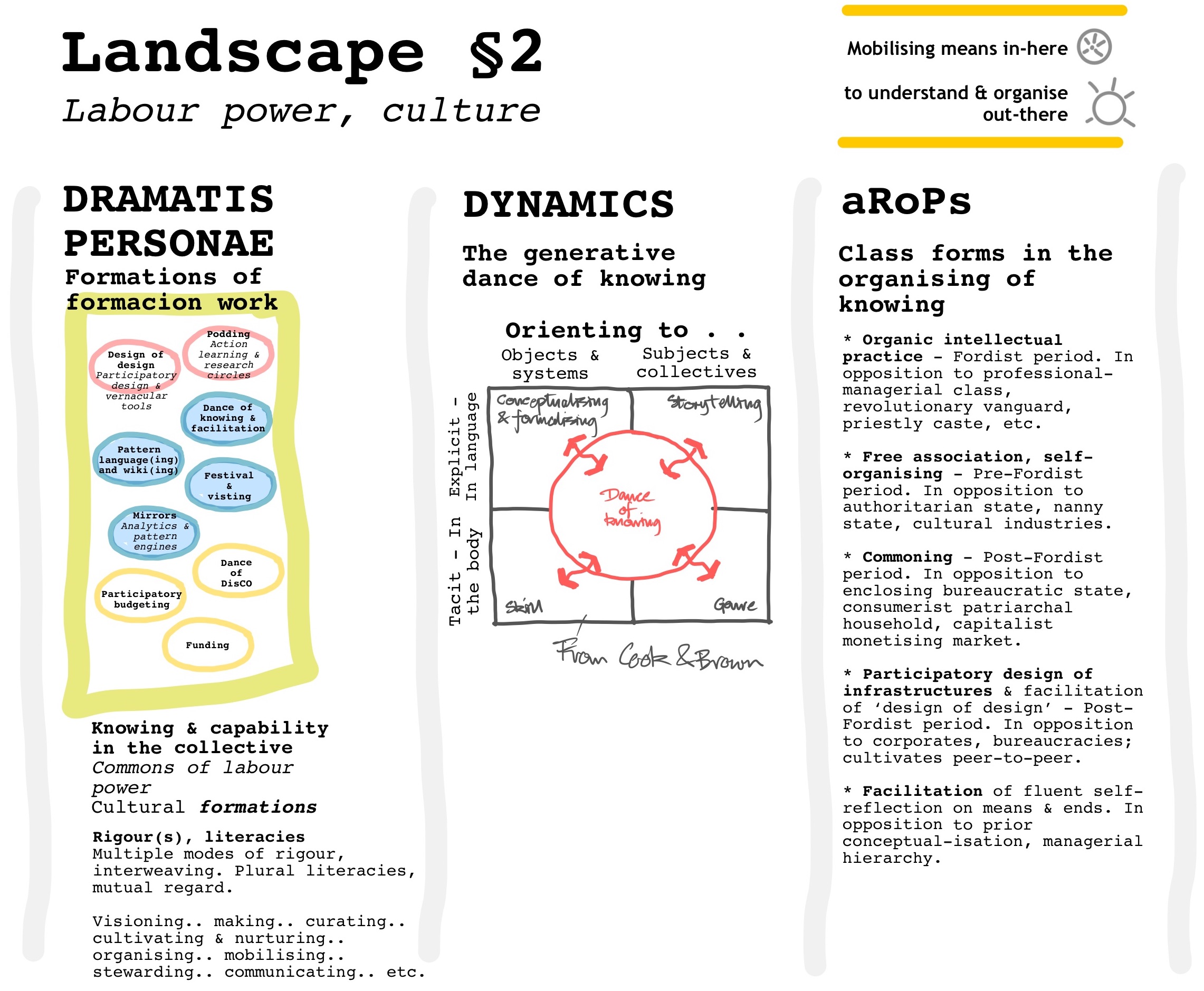**Schools in the faculty**
Schools in the Faculty of formaciòn work
**§1 Material landscape** - School of *Podding* - Basic methdology in the college . . The conduct in ‘circles’ (design circles, study circles, action-learning circles) of action learning and action research.
- School of *Design of design* - Participatory design & vernacular tools . . Likewise, conducted in circles, but generating infrastructure and prosthesis (material organisation) as distinct from insight and literacy (labour power).
**§2 Cultural landscape** - School of the *Dance of knowing and facilitation* - Production in cultural commons, the production of organic intellect.
- School of *Pattern language(ing) and wiki(ing)*.
- School of *Commons festival and visiting*: ‘networking’, mutualising, bringing (activist) lives into the presence of (activist) lives.
- School of *Mirrors* - Analytics and pattern engines . . Analytics: the orbiting satellite view, the ‘trending’ view, intelligence of the tacit emergence of our own formations and constellations of common means.
**§3 Aesthetic landscape - A political economy of capability . .** - School of *DisCO* (distributed cooperative organisations) - A political economy of work in coops with a radical agenda, designed to produce . . deep mutuality across *physical distance* and a division of labour . . a working culture of *contribution accounting* across diverse forms of work including ‘care work’, and . . *a commons* alongside its livelihood work.
- School of *Foundations* - A political economy of living labour . . of subsistence and radical transformation . . of funding and volunteering, of foundations and trusts, of wage-work and revenues. The dance of livelihood work and care work, of livelihood reward and recognition, and care reward and recognition; the support of conditions for the *mobilising* of labour power (that is, conditions for living labour) - not for subsistence (which is in the sectors of landscape §1) but for radical *cultural and aesthetic* production, the production of radical ‘we’; this is what the mutual sector is historically *for*.
- School of *Participatory budgeting* - A political economy of infrastructuring . . The technics and pragmatics of participatory disposition of resources, as ‘we’ tacitly consent to them: participatory budgeting, open democracy, distributing means across regions and locations.

**§2 Cultural landscape - System map** Here is the system map of the §2 cultural landscape of the college curriculum . . engaging the producing, curating, mobilising and stewarding of labour powers: formaciòn, the capable intentional production of ‘we’.

System map - §2 cultural landscape
--- Next section: 5 A college - Hidden curriculum